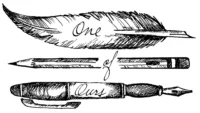Presentation Acceptance Lists
Accepted Roundtables – 11/19/2024
Accepted Research in the Round – 1/7/2025
The following guidelines can greatly improve your performance and enhance your presentation of your creative work, paper, or roundtable.
- Practice reading your accepted work in advance of your presentation. Make sure that you can read the work in under 15 minutes; consider making pronunciation notes for difficult names or words.
- Check out the location and time in advance. Know where and when your session is to be held to minimize feeling rushed.
- Arrive for your session at least five minutes prior to the start time, introduce yourself to the session chair and moderator, and confirm the pronunciation of your name.
- Stand at the podium to read your paper or creative work. If the room has no podium, consider standing anyway–your voice projects more when you stand than when you sit, and the audience will be able to see you.
- Observe time limits and keep under 15-minute time limit, not only as a courtesy to your fellow presenters, but also to allow time for questions at the end of the session. Watch your moderator for a subtle sign that you have reached your time limit.
- Enunciate, and speak audibly and slowly enough so listeners can follow along. With the exception of minor revisions to improve grammar or readability, do not improvise or deviate from the work that was accepted for convention.
- Practice good speech-giving strategies. Be aware of your body language and of the eye contact you keep with your audience. Since the attention of your listeners should be on your words, avoid anything that draws their attention away from your words. Consider bringing a handout so that your audience has something to guide them to important points in your paper as they listen and so that they have something to write on during your presentation. You might also consider a QR code for digital handout access.
- Listen to fellow panelists and jot down thoughtful comments or questions to ask them.
- Save your improvisational skill for the question period, when you will need it. Then answer questions from the audience clearly and concisely.
- Remember—you are among friends. At a conference, where you are sharing your ideas with strangers, you may feel vulnerable to their criticism. But remember that your peers feel the same way—and that you can return the favor of their careful attention in their sessions.
- Dress professionally. Presenters generally choose to present in business or “business casual” attire. While your comfort is important, your clothing should signify that you are to be taken seriously. Make sure that your shoes are comfortable to stand in for fifteen minutes.
